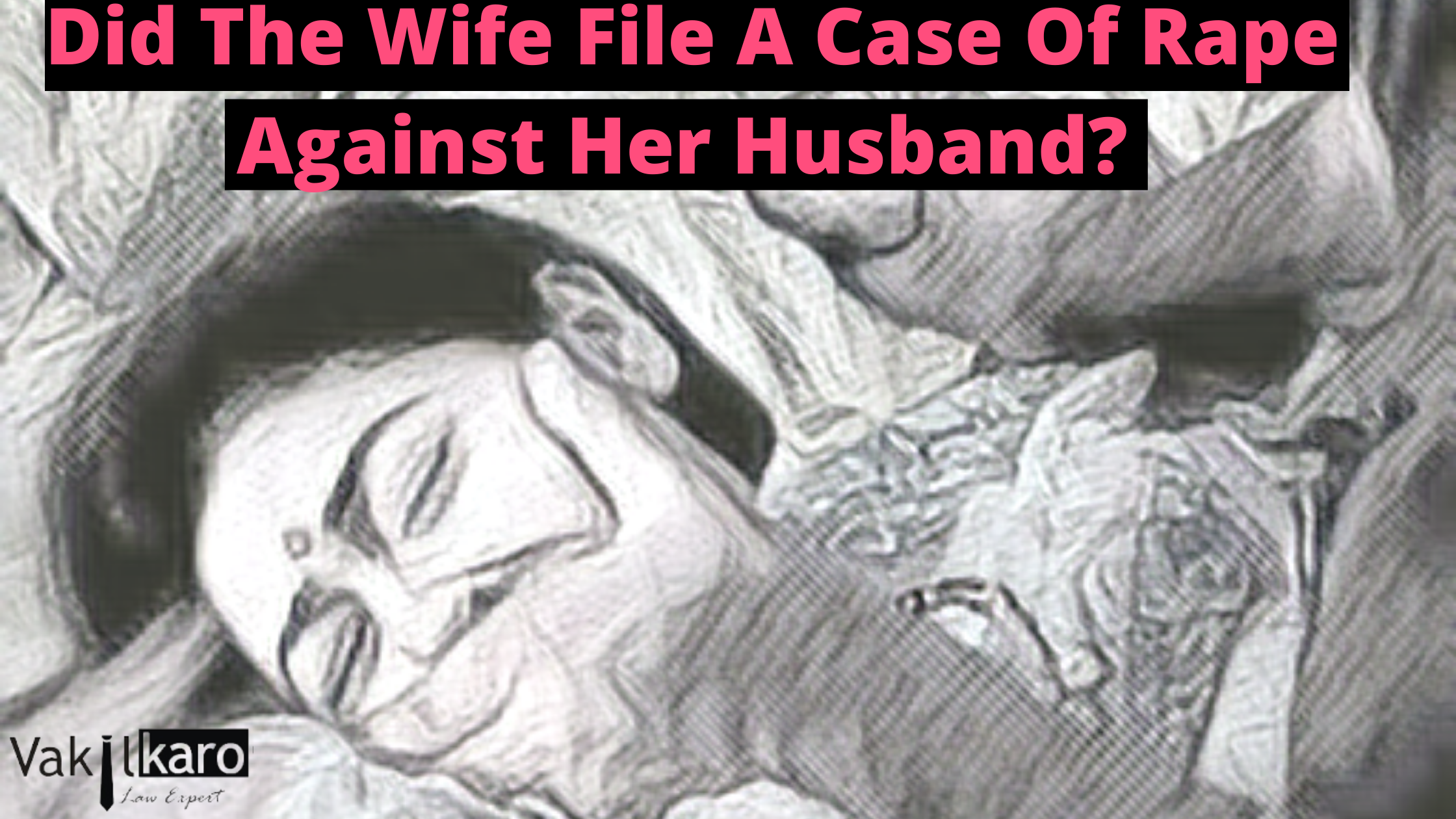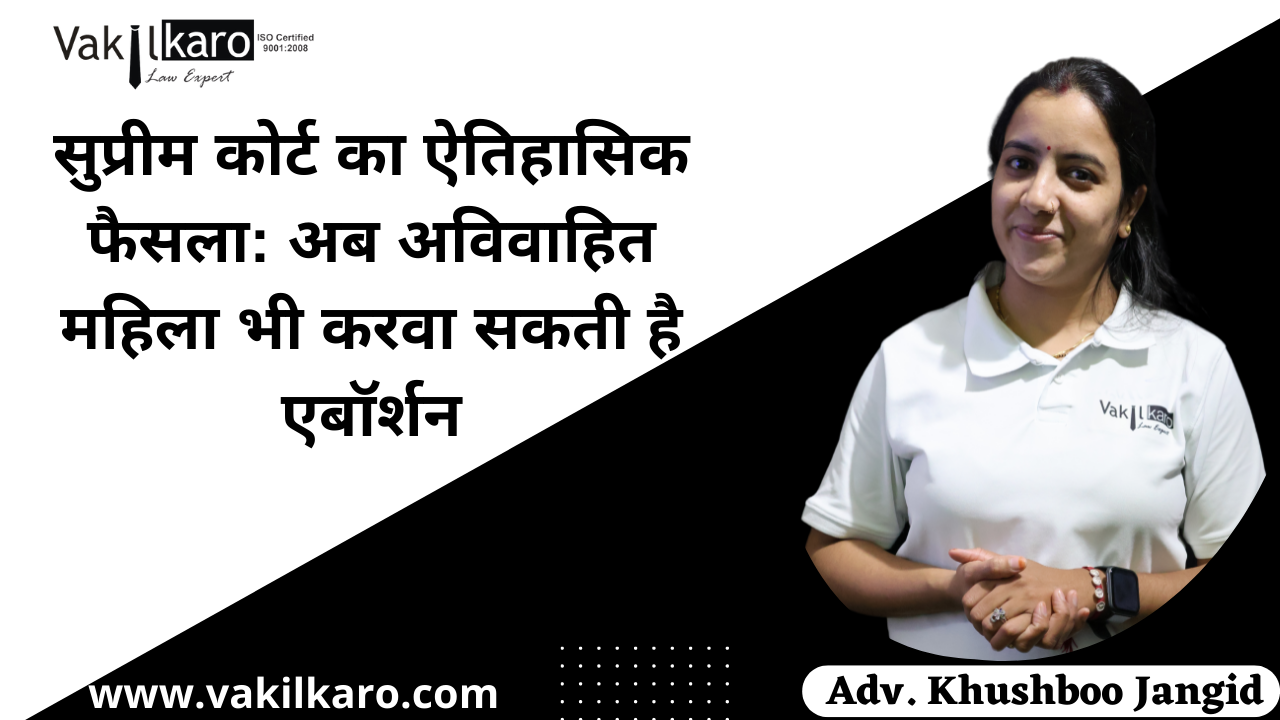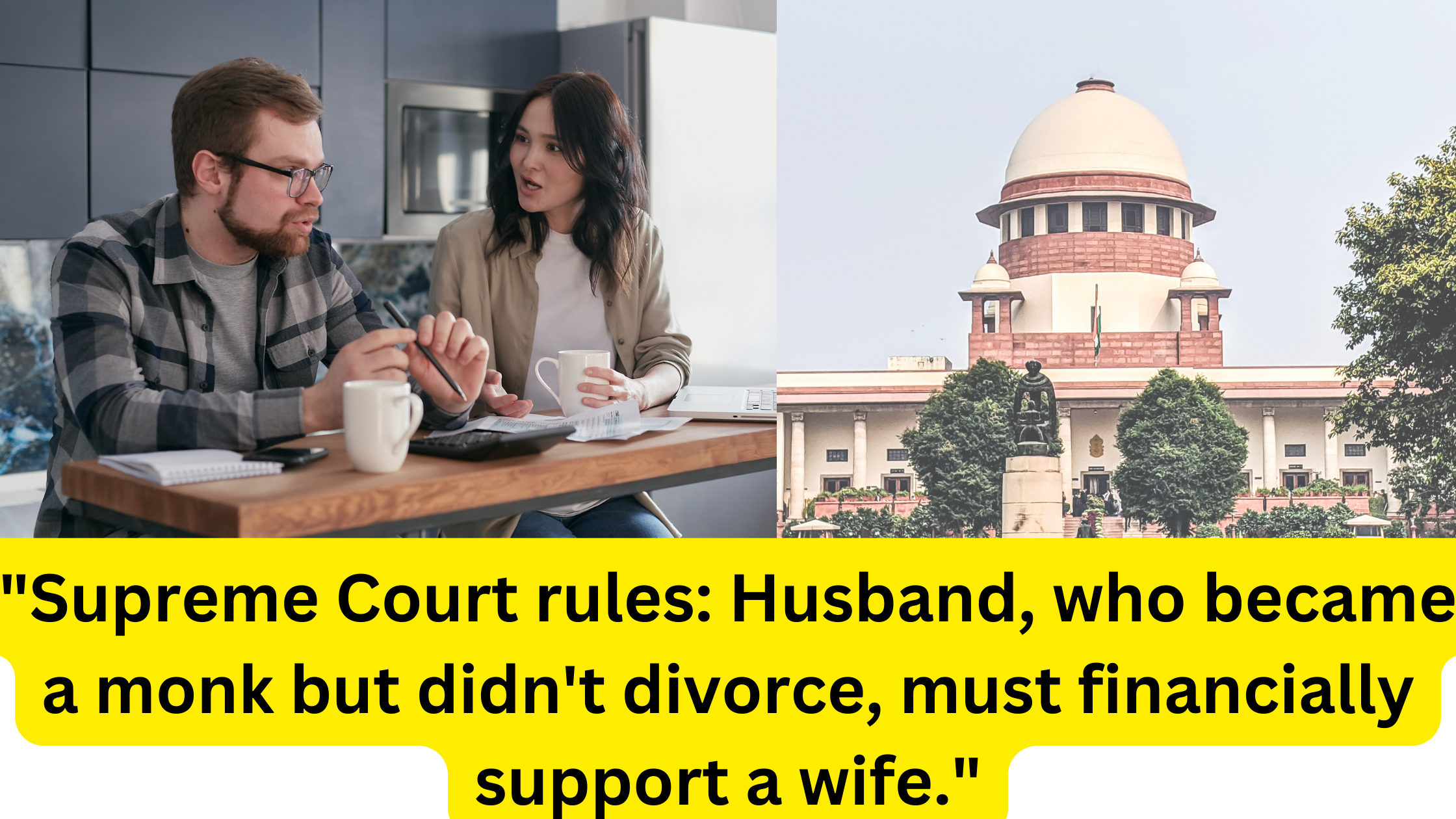"Can husband seek maintenance from wife under Indian law?"
Maintenance law is a gender-equitable law under the Hindu Marriage Act as it provides the right of maintenance to both husband and wife. However, other laws give this right only to wives; hence, petitions have been filed against other laws, such as Section 125 of the CrPC, in the Supreme Court, claiming it to be gender-biased.
The provision in the case of the wife is generally liberal, and the wife is permitted to claim maintenance from the husband in almost all cases, but the position is not the same in the case of the husband. Only one law gives this right to husbands, and that too with strict conditions. So more laws should be made and implemented in other states so that husbands can also claim their rights, and thus equality prevails in society.
This article lets us understand how and when a husband can and cannot claim maintenance from his wife.
Can the husband claim maintenance from his wife's Indian provisions?
- Yes, a husband can claim maintenance from his wife under certain circumstances in India. In India, the right to claim maintenance for spouses is governed by the provisions of the Hindu Marriage Act 1955, the Special Marriage Act 1954, and the Code of Criminal Procedure 1973.
When a husband can demand maintenance from the wife:
In India, a husband can demand maintenance from his wife under certain situations, which are as follows:
- If the husband cannot maintain himself due to any physical or mental disability or for any other reason beyond his control, and his wife has sufficient means to provide maintenance.
- If the husband is unemployed or underemployed and cannot earn enough to sustain himself, his wife has sufficient means to provide maintenance.
- If the husband cannot maintain himself due to unforeseen circumstances such as job loss, business failure, or any other similar reason, his wife has sufficient means to provide maintenance.
- If the husband is a senior citizen and cannot maintain himself for any reason, his wife has sufficient means to provide maintenance.
- If the husband cannot maintain himself due to any reason arising from a dispute or separation from his wife, and his wife has sufficient means to provide maintenance.
It is important to note that for a husband to demand maintenance from his wife, he must prove that he cannot maintain himself financially and that his wife has the financial capacity to provide maintenance.
When the husband can't demand maintenance from the wife:
There are situations in which a husband cannot demand maintenance from his wife in India, which are as follows:
- Suppose the husband is earning sufficient income to maintain himself and has no physical or mental disability that prevents him from earning a livelihood. In that case, he cannot demand maintenance from his wife.
- If the husband has deserted his wife without any reasonable cause or justification, he cannot demand maintenance from her.
- If the husband has committed an act of cruelty towards his wife, such as physical or mental abuse, he cannot demand maintenance from her.
- If the husband has remarried or is living in adultery, he cannot demand maintenance from his wife.
- If the husband voluntarily gives up his right to claim maintenance from his wife, he cannot demand it later.
The husband must prove that he cannot maintain himself financially and that his wife has the financial capacity to provide maintenance. Additionally, he must prove that he falls under the circumstances mentioned under the law to be eligible for maintenance. The court will take into account all relevant factors and make a decision based on the merits of each case.
Maintenance-related provisions in Indian Law:
Hindu Marriage Act:
The Hindu Marriage Act 1955 provides provisions related to maintenance in Hindu marriages. Some of the essential requirements are as follows:
- Section 24: This section provides interim maintenance to either spouse during the pendency of the divorce proceedings. The court may order the husband to pay maintenance to the wife if she cannot maintain herself.
- Section 25: This section provides for permanent alimony and maintenance to either spouse after the divorce has been granted. The court may order the husband to pay the wife a lump sum or monthly maintenance if she cannot maintain herself after the divorce.
- Section 26: This section provides for custody of children and maintenance to be paid by either spouse for the maintenance and education of the children.
- Section 27 provides for an agreement between the spouses concerning permanent alimony and maintenance, which shall be binding on both parties.
- Section 36: This section provides the court's power to make orders to maintain either spouse, even after the marriage has been dissolved, annulled, or declared void.
It is important to note that the provisions of the Hindu Marriage Act 1955 apply to Hindu marriages only. The Act lays down specific criteria, such as the parties' income, the standard of living enjoyed during the wedding, the physical and mental health of the parties, and other relevant factors for determining the amount of maintenance to be awarded.
CrPC provisions:
The Code of Criminal Procedure, 1973, provides maintenance-related provisions in India. Some of the key provisions are as follows:
- Section 125: This section provides for maintenance to be paid by a husband to his wife, children, and parents if they cannot maintain themselves.
- Section 126 provides the procedure for enforcing the order passed under Section 125.
- Section 127: This section provides for the alteration, modification, or cancellation of an order passed under Section 125.
- Section 128: This section provides the court's power to make an order to recover maintenance as an arrear of land revenue.
- Section 129: This section provides the court's power to issue a warrant for the attachment of property in case of non-payment of maintenance.
- Section 130: This section provides for the court's power to sentence a person to imprisonment in case of failure to comply with the order passed under Section 125.
These provisions apply to all religions and are gender-neutral. The court will consider various factors while deciding on the amount of maintenance to be awarded. The provisions of the CrPC are applicable if a person fails to maintain his dependent family members, including his wife, children, and parents.
Indian case laws on husband's right to claim maintenance from wife:
There have been several Indian case laws related to the husband's right to claim maintenance from his wife. Some of them are:
- The landmark case of Jasbir Kaur Sehgal vs. District Judge, Dehradun, and Others, (1997) 7 SCC 7, where the Supreme Court held that a husband could claim maintenance from his wife if he is unable to maintain himself due to any physical or mental disability or for any other reason beyond his control. His wife has sufficient means to provide maintenance.
- In Manish Jain vs. Akanksha Jain (2017) 15 SCC 1, the Supreme Court held that the right to claim maintenance is not gender-specific and that a husband can claim maintenance from his wife if he is unable to maintain himself.
- In Savitaben Somabhai Bhatiya vs. the State of Gujarat (2005) 3 SCC 636, the Supreme Court held that a husband could claim maintenance from his wife if he is unemployed or underemployed and is not able to earn enough to sustain himself.
- In Vinny Parmvir Parmar vs. Parmvir Parmar (2011) 13 SCC 112, the Supreme Court held that a husband could claim maintenance from his wife if he cannot maintain himself due to any unforeseen circumstances such as loss of job, business failure, or any other similar reason.
- In R. Srinivas Kumar vs. R. Shametha (2019) 17 SCC 251, the Supreme Court held that a husband could claim maintenance from his wife even if he is well-educated and qualified but unable to find employment.
These cases establish that a husband can claim maintenance from his wife under certain circumstances. The court will consider various factors while deciding on the amount of maintenance to be awarded. The court will take into account all relevant aspects and make a decision based on the merits of each case.
Vakilkaro is a Best Legal Services Providers Company, which provides Civil, Criminal & Corporate Laws Services and Registration Services like Private Limited Company Registration, LLP Registration, Nidhi Company Registration, Microfinance Company Registration, Section 8 Company Registration, NBFC Registration, Trademark Registration, 80G & 12A Registration, Niti Aayog Registration, FSSAI Registration, and other related Legal Services.
Contact India's best Legal Firm, Vakilkaro, today. You can give us a call at +919828123489 or may write an Email also at help@vakilkaro.co.in. We are here to serve you 24/7.
"Happy Customer serves the company success"- we aim to achieve this through our legal services."
Why should you trust Vakilkaro?
- 100% guaranteed satisfaction
- Largest Network across India
- Easy to Hire
- Provides legal service in easy language.

 +91 9828123489
+91 9828123489 +91 9828123489
+91 9828123489 help@vakilkaro.co.in
help@vakilkaro.co.in







.png)







.jpg)
.jpg)
.png)

.png)
.jpg)
 +91 9828123489
+91 9828123489 help@vakilkaro.co.in
help@vakilkaro.co.in